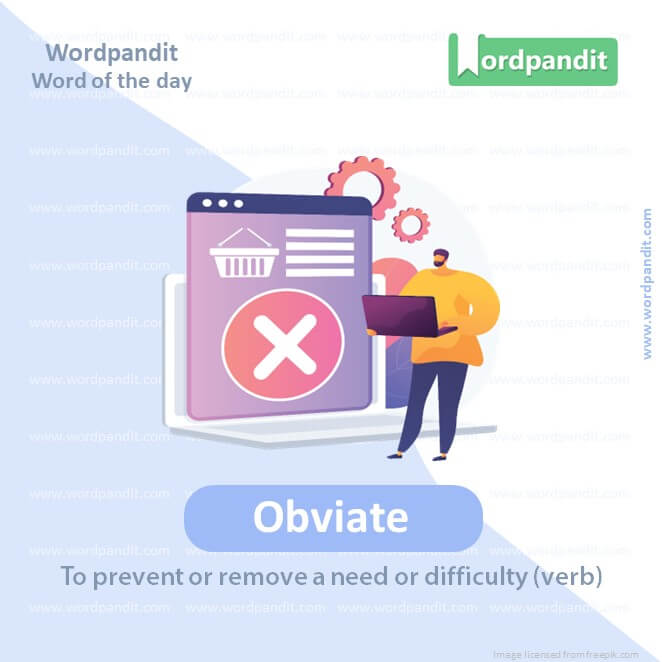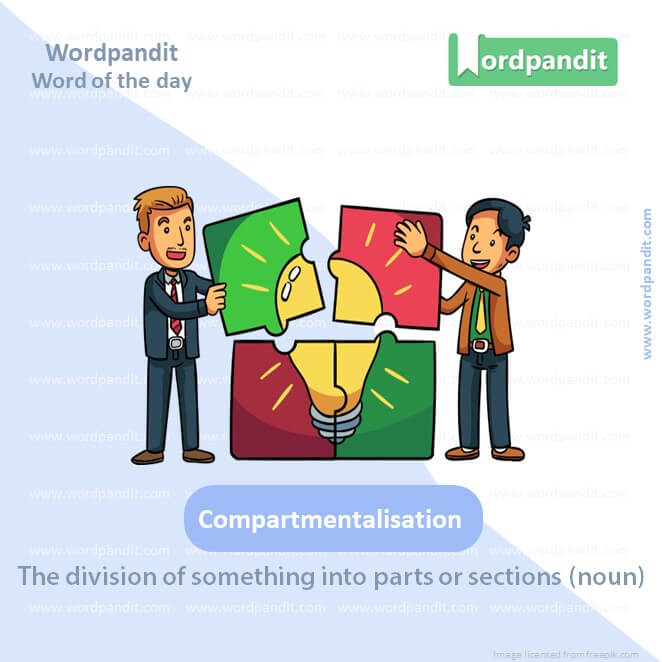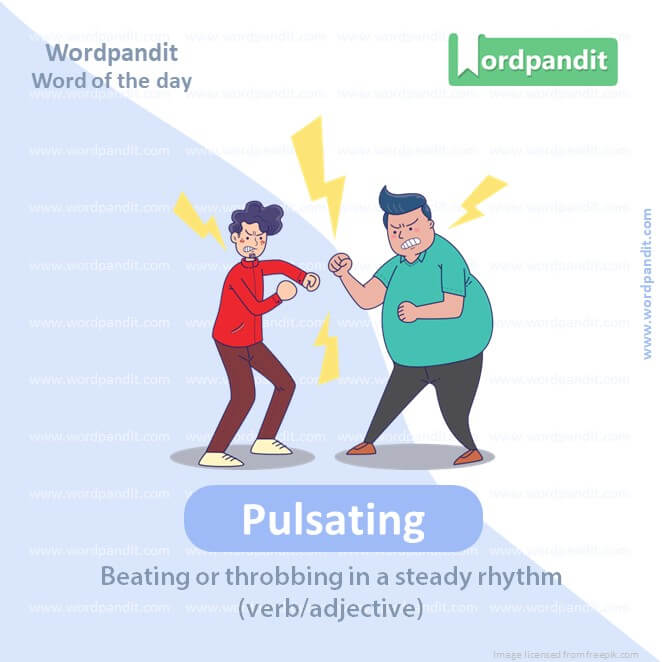Daily Vocabulary Words: List of Daily Used Words in Leading Indian Newspapers
Hi there. Welcome to this special section @ Wordpandit. Our endeavour here is straightforward: highlighting daily vocabulary words that you would come across in leading newspapers in the country. We have included the following newspapers in our selection:
• The Times of India
• The Economic Times
• Hindustan Times
• Mint
• Indian Express
We are putting in extensive work to develop your vocabulary. All you have to do is be regular with this section and check out this post daily. This is your repository of commonly used words; essentially, we are posting a list of daily used words. Hence, this has significant practical application as it teaches you words that are commonly used in leading publications mentioned above.
Visit the website daily to learn words from leading Indian newspapers.

WORD-1: Disillusionment
CONTEXT: Tadimalla stated that she was leaving the party with a heavy heart and disillusionment.
SOURCE: Times of India
EXPLANATORY PARAGRAPH: Disillusionment is when you believe something is really great or perfect, and then you discover it’s not as good as you thought. It’s like thinking you’re going to get a big ice cream cone, but when you get it, it’s really tiny.
MEANING: A feeling of disappointment or loss of belief in something once thought to be great (noun).
PRONUNCIATION: Diss-ill-oo-sion-ment
SYNONYMS: Disenchantment, Letdown, Disappointment, Disheartenment, Discouragement, Disillusion, Bitterness.
USAGE EXAMPLES:
1. She felt a deep disillusionment after realizing her hero was not perfect.
2. The movie’s ending brought a sense of disillusionment to many fans.
3. His disillusionment with politics began at a young age.
4. Disillusionment can sometimes help us see the reality more clearly.

WORD-2: Obviate
CONTEXT: Vizhinjam could become a key trans-shipment hub, and obviate the need for India’s EXIM cargo to be sent to foreign ports.
SOURCE: Hindustan Times
EXPLANATORY PARAGRAPH: Obviate means to remove a problem or prevent it from happening. Imagine you see a big puddle on the floor, and you clean it up before someone slips. You’ve just obviated the problem!
MEANING: To prevent or remove a need or difficulty (verb).
PRONUNCIATION: Ob-vee-ate
SYNONYMS: Prevent, Avoid, Forestall, Preclude, Avert, Eliminate, Counteract.
USAGE EXAMPLES:
1. Wearing sunscreen can obviate the risk of sunburn.
2. The new bridge will obviate the need for a ferry.
3. His thorough preparation obviated any potential problems.
4. The medicine obviated the spread of the infection.

WORD-3: Compartmentalisation
CONTEXT: The sad truth is that their friends and allies have fallen victim to the same compartmentalisation.
SOURCE: Hindustan Times
EXPLANATORY PARAGRAPH: Compartmentalisation is like having a box with different sections or compartments for different things. It’s when you put different things or thoughts in their own “sections” in your mind.
MEANING: The division of something into parts or sections (noun).
PRONUNCIATION: Com-part-mental-eye-say-shun
SYNONYMS: Segregation, Separation, Division, Categorization, Classification, Differentiation, Partitioning.
USAGE EXAMPLES:
1. She used compartmentalisation to balance work and home life.
2. The suitcase has excellent compartmentalisation for storing different items.
3. Compartmentalisation can help in managing multiple tasks efficiently.
4. He mastered the art of compartmentalisation to keep his emotions in check.

WORD-4: Pulsating
CONTEXT: Will only leave behind a searing grievance and pulsating hurt that will inevitably lay the foundations for a worse problem in the future.
SOURCE: Hindustan Times
EXPLANATORY PARAGRAPH: Pulsating is like the steady beat of a drum or the thumping of your heart. It’s when something keeps going “thump-thump-thump” in a rhythm.
MEANING: Beating or throbbing in a steady rhythm (verb/adjective).
PRONUNCIATION: Pul-say-ting
SYNONYMS: Throbbing, Beating, Pounding, Palpitating, Thumping, Vibrating, Resonating.
USAGE EXAMPLES:
1. The pulsating music at the concert made everyone dance.
2. He could feel a pulsating pain in his head.
3. The city had a pulsating energy at night.
4. The stars seemed to be pulsating in the night sky.

WORD-5: Ingratiated
CONTEXT: He ingratiated himself and his family into my life under the guise of a caring elder person.
SOURCE: Times of India
EXPLANATORY PARAGRAPH: Ingratiated is when someone tries to make others like them by doing things to please them. It’s like giving lots of gifts to someone so they will be your friend.
MEANING: To make someone like you by pleasing or flattering them (verb).
PRONUNCIATION: In-gray-shee-ated
SYNONYMS: Curry favor, Cozy up, Win over, Flatter, Woo, Charm, Endear oneself.
USAGE EXAMPLES:
1. She ingratiated herself with the boss by always agreeing with him.
2. Tom tried to ingratiate with the new neighbors by baking them cookies.
3. In her attempt to ingratiate, she complimented everyone at the party.
4. The new student ingratiated himself with the teacher by volunteering for tasks.
WORD-6: Steadfast
CONTEXT: Even after 25 years of steadfast loyalty to the Party, the actress expressed.
SOURCE: Times of India
EXPLANATORY PARAGRAPH: Steadfast is like being a strong tree that doesn’t move even when it’s very windy. It means being loyal, strong, and not changing your mind easily.
MEANING: Firmly loyal or constant; unchanging (adjective).
PRONUNCIATION: Stead-fast
SYNONYMS: Loyal, Faithful, Unwavering, Resolute, Constant, Unyielding, Unswerving.
USAGE EXAMPLES:
1. His steadfast support was crucial during the tough times.
2. She remained steadfast in her beliefs despite opposition.
3. The team showed a steadfast determination to win.
4. The community praised her for her steadfast commitment to charity.
WORD-7: Halted
CONTEXT: The Thiruvananthapuram International Airport Ltd announced that flight services will be halted from 4 pm to 9 pm to allow the Alpassi Arattu procession by the Sree Padmanabhaswamy temple.
SOURCE: Times of India
EXPLANATORY PARAGRAPH: Halted means to stop. Imagine you’re playing a game and someone yells “Freeze!” and everyone stops moving. That’s like halting!
MEANING: Stopped or brought to a stop (verb).
PRONUNCIATION: Halt-ed
SYNONYMS: Stopped, Paused, Ceased, Frozen, Suspended, Arrested, Terminated.
USAGE EXAMPLES:
1. The rain halted our picnic plans.
2. The construction was halted due to safety concerns.
3. The march was halted by the police.
4. The train halted at the station for ten minutes.
WORD-8: Unmentionable
CONTEXT: Men and women also lived in relationships. ‘Gay’ and ‘Lesbian’ are no longer unmentionable words.
SOURCE: Indian Express
EXPLANATORY PARAGRAPH: Unmentionable is something you shouldn’t talk about because it might be embarrassing or not polite. Like certain body parts or secrets, we keep them private!
MEANING: Not suitable or allowed to be mentioned (adjective).
PRONUNCIATION: Un-men-shun-uh-bul
SYNONYMS: Taboo, Forbidden, Indecent, Unspeakable, Off-limits, Inappropriate, Unsaid.
USAGE EXAMPLES:
1. There are certain unmentionable topics that we avoid at family dinners.
2. She giggled when the comedian hinted at the unmentionables.
3. In some cultures, discussing money openly is considered unmentionable.
4. The children knew that the attic was an unmentionable place in the house.
WORD-9: Shackles
CONTEXT: They broke the shackles and boldly declared that a person has the right to choose a partner irrespective of gender.
SOURCE: Indian Express
EXPLANATORY PARAGRAPH: Shackles are like chains or metal bands that can be put around someone’s wrists or ankles. They’re used to keep someone from moving freely. Think of old pirate movies where prisoners have shackles on their feet!
MEANING: Metal bands or chains placed around the wrists or ankles to restrict movement (noun).
PRONUNCIATION: Shack-uls
SYNONYMS: Chains, Fetters, Manacles, Bonds, Restraints, Cuffs, Handcuffs.
USAGE EXAMPLES:
1. The prisoners were freed from their shackles.
2. The oppressive regime used shackles to control its people.
3. Breaking free from mental shackles can be liberating.
4. He felt the shackles of tradition holding him back.
WORD-10: Self-righteous
CONTEXT: They will be ‘undisturbed’ is uncertain in a country with enough self-righteous enforcers of moral laws.
SOURCE: Indian Express
EXPLANATORY PARAGRAPH: Self-righteous is when someone thinks they’re always right and better than everyone else. Imagine someone who always tells others what to do and thinks they’re never wrong, even if they are.
MEANING: Confident of one’s own righteousness, especially when moralistic and intolerant of the opinions and behavior of others (adjective).
PRONUNCIATION: Self-rye-chus
SYNONYMS: Sanctimonious, Holier-than-thou, Smug, Priggish, Complacent, Superior, Pious.
USAGE EXAMPLES:
1. Her self-righteous attitude made it difficult for others to approach her.
2. He had a self-righteous way of always claiming he knew better.
3. Nobody likes a self-righteous person who judges everyone else’s choices.
4. During the debate, his self-righteous tone was evident.
vocabulary journal words
In the realm of language learning, one unparalleled method has been consistently proven to provide tremendous value – engaging with vocabulary journal words. This practice is a brilliant tool that provides a platform for the gradual introduction of new words, phrases, and their nuances.
But how exactly should we approach learning vocabulary journal words?
Originally, vocabulary journal words are a collection of new words you encounter that are challenging and unfamiliar. On stumbling upon such words, take the first step by writing them down in your journal. But simply recording them isn’t enough. The real strength of vocabulary journal words lies in understanding and using them in context. Draft sentences using these words, as this practical usage not only enhances retention but also familiarizes you with their applicability.
Expanding your vision beyond memorization, indulge in understanding the background of these vocabulary journal words. Dive into the etymology of the words, learn their origins, and uncover the different meanings they’ve held over time. This nugget of information often aids in deeper understanding and long-term retention of words.
Your engagement with vocabulary journal words should not be reserved for solitary learning. Discuss these words in conversation with friends, family, or language mentors. This encourages active usage and, silently but surely, integrates them into your everyday language.
Another enchanting side to vocabulary journal words is the potential for creativity. Create small stories or visuals connected to the words, leading your brain to create multiple neural connections to the meaning of the word – a powerful strategy for enhancing retention.
In essence, vocabulary journal words offer a multifaceted, immersive learning process that goes beyond just enhancing your word-list. They open doors to the dynamic world of language and its contexts, training your mind to appreciate, understand, and effectively communicate with an enriched vocabulary. Consider vocabulary journal words not as a task but as your secret allies on your beautiful journey through language learning.











